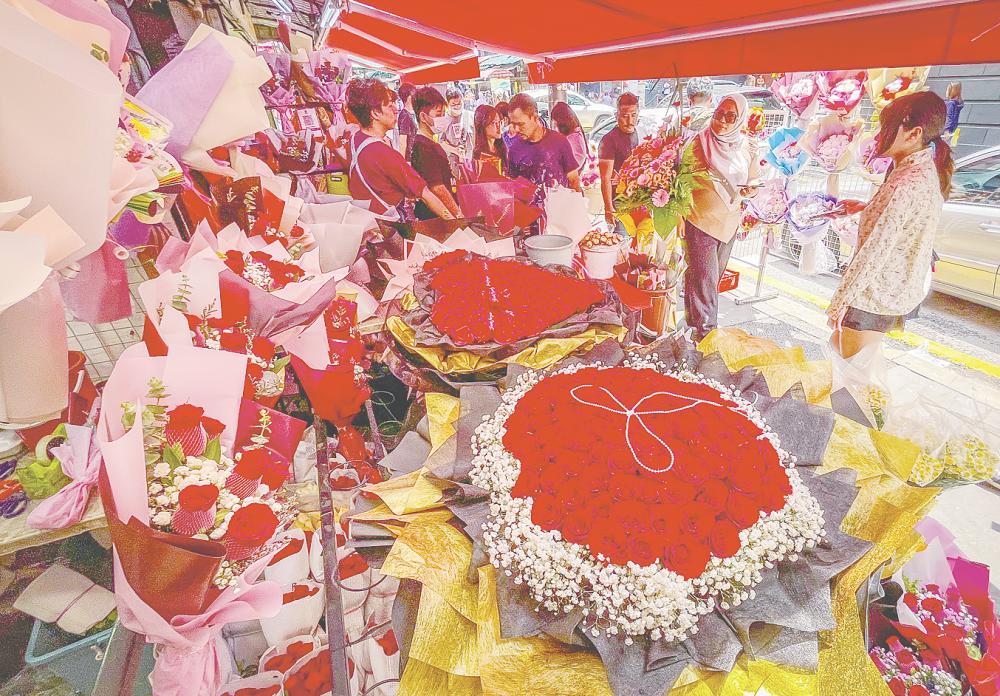I AM not going to go into arguments for or against the celebration or observance of Valentine’s Day. However, this day often brings with it the usual fanfare come Feb 14 – red roses, heart-shaped chocolates and Instagram posts adorned with declarations of love.
There is nothing wrong with that but sometimes I wonder if we have reduced love to a fleeting sentiment, an aesthetic to display rather than an essence to embody. When in truth, love is not just a feeling – it is a verb.
It is the conscious choices we make every single day in how we treat those around us, whether they are our family, friends, colleagues or even strangers.
Viktor Frankl, in his 1946 book, Man’s Search for Meaning, wrote, “Love is the ultimate and the highest goal to which man can aspire”. But this love he speaks of is not passive or indulgent; it is active and purposeful, a force that uplifts not just the one who is loved but also the one who loves.
Consider this: when you hold a door open for someone laden with grocery bags, that is love. When you set your phone aside to listen to your friend vent about their rough day, that is love. When you choose patience over anger, forgiveness over resentment and kindness over indifference, you are practising love.
Frankl’s philosophy resonates deeply with me because it acknowledges love, not just as a lofty ideal but as a call to action.
He wrote of finding meaning in the smallest gestures, especially in the darkest moments. For him, love was not just a refuge but a duty – a way to honour someone’s humanity, even in the toughest of times. I am reminded of this every time my wife wipes a stray crumb off my chin while we are eating, especially in public.
After my brain tumour surgery in 2016, the right side of my face was left partially paralysed, causing my mouth to droop slightly. Sometimes, without realising it, bits of food would slip down when I take a bite. And each time, without a word, she would reach over and brush it away – casually, instinctively. It is a small gesture, but in those quiet moments, it definitely speaks louder than any “I love you”.
The beauty of love as a verb is that it goes beyond romantic relationships. For many of us, it is easy to focus solely on partners and spouses, but love, in its truest form, knows no boundaries.
It is just as present in a teacher who stays back after class to help a struggling student or in a colleague who quietly covers for you when you are having an off day.
Love is woven into the fabric of everyday life, waiting to be expressed through intentional, selfless actions.
We often underestimate the impact of these small gestures. Yet, think about the last time someone showed you an unexpected kindness – a stranger’s smile, a friend’s thoughtful text or a partner’s simple “How was your day?” Such moments, though fleeting, have a way of lingering in our hearts far longer than we expect.
The next time you plan to show your love to that special someone, I invite you to look beyond the flowers and gifts and instead focus on how you can embody love. Show it through words that uplift, deeds that heal or time that says, “I’m here for you”.
Tell your spouse you appreciate them – not just for the big things but for the countless little things they do.
Reach out to an old friend you have not spoken to in a while. Thank the Bangladeshi waiter at your local mamak stall for wiping your table before taking your orders. Send that cute kitten video that sings the viral Rose and Bruno Mars’ song.
The essence of love lies in its simplicity. It is not about grand gestures or elaborate displays but about the everyday actions that affirm someone’s worth and make their world a little brighter.
As Frankl so eloquently put it, love is not something we merely aspire to; it is something we do.
Ir Dr Nahrizul Adib Kadri is a professor of biomedical engineering and the Principal of Ibnu Sina Residential College, Universiti Malaya. Comments: letters@thesundaily.com









